(srpski) Srbija odgovorna za torture u logoru Šljivovica

Sorry, this entry is only available in srpski.


Sorry, this entry is only available in srpski.

 The new issue of the bulletin through ACCESSION towards JUSTICE has been published!
The new issue of the bulletin through ACCESSION towards JUSTICE has been published!
The sixth issue brings to attention the discussion on rare war crimes indictments filed against high-ranking members of the military and police, as well as the possibility to prosecute for command responsibility and crimes against humanity.
A researcher from the Amnesty International, Sian Jones, poses the question as to why an adequate investigation of those suspected of planning, instigating, ordering and covering up war crimes in Serbia still does not exist despite its numerous announcements. Ivan Jovanović, a Consultant for international criminal and humanitarian law, argues whether command responsibility and crimes against humanity can be prosecuted in Serbia and why.
The News column provides an overview of the latest developments in the field of transitional justice and the European integration of Serbia.
Send us your opinion and comments on the bulletin and/or topics that it initiates to the e-mail address towardsJUSTICE@hlc-rdc.org. Discussion is also welcome on Twitter/#towardsJUSTICE.
Download your copy of the bulletin here.
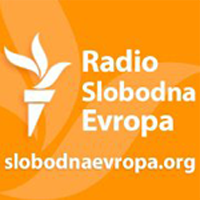
Sorry, this entry is only available in srpski.
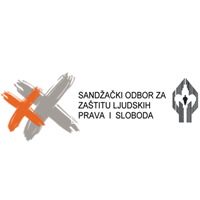
 In an interview for the daily newspaper Večernje novosti, published on September 6, 2014 under the title “Ugljanin inventing Torture”, Suzana Paunović, the Director of the Office for Human and Minority Rights of Serbia, said that the claim made by the former Minister without portfolio, Sulejman Ugljanin, which stated that Bosniaks in Sandžak were victims of systematic torture, is inappropriate and unfounded.
In an interview for the daily newspaper Večernje novosti, published on September 6, 2014 under the title “Ugljanin inventing Torture”, Suzana Paunović, the Director of the Office for Human and Minority Rights of Serbia, said that the claim made by the former Minister without portfolio, Sulejman Ugljanin, which stated that Bosniaks in Sandžak were victims of systematic torture, is inappropriate and unfounded.

 The Court of Appeals in Belgrade (Court of Appeals) amended the judgment of the First Basic Court in Belgrade and rendered a final judgment stating that Serbia is responsible for the torture and inhumane treatment of the Bosniaks Enes Bogilović and Mušan Džebo from Žepa, committed by members of the Ministry of the Interior (MOI). Bogilović and Džebo were detained in the concentration camp Šljivovica (municipality Čajetina) in 1995 and 1996. The Court of Appeals also obliged the State to pay them compensation to the amount of 600,000 RSD. Although the amount awarded may not constitute fair compensation for the victims, the Humanitarian Law Center (HLC) points out that the final court assessment of the treatment of captured Bosniaks in the camp Šljivovica by members of the MOI represents the first institutional recognition of the atrocities committed against Bosniaks in the concentration camps at Šljivovica and Mitrovo Polje.
The Court of Appeals in Belgrade (Court of Appeals) amended the judgment of the First Basic Court in Belgrade and rendered a final judgment stating that Serbia is responsible for the torture and inhumane treatment of the Bosniaks Enes Bogilović and Mušan Džebo from Žepa, committed by members of the Ministry of the Interior (MOI). Bogilović and Džebo were detained in the concentration camp Šljivovica (municipality Čajetina) in 1995 and 1996. The Court of Appeals also obliged the State to pay them compensation to the amount of 600,000 RSD. Although the amount awarded may not constitute fair compensation for the victims, the Humanitarian Law Center (HLC) points out that the final court assessment of the treatment of captured Bosniaks in the camp Šljivovica by members of the MOI represents the first institutional recognition of the atrocities committed against Bosniaks in the concentration camps at Šljivovica and Mitrovo Polje.
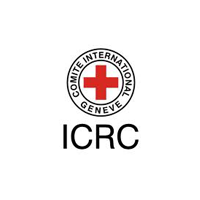
 The past conflicts in the Western Balkan left thousands of missing people. The ICRC registered more than 34 000 cases related to the conflicts in Croatia, Serbia, Bosnia and Herzegovina and Kosovo. More than 23 000 were already resolved, but over 11 000 families remain without an answer about the fate of their missing relatives.
The past conflicts in the Western Balkan left thousands of missing people. The ICRC registered more than 34 000 cases related to the conflicts in Croatia, Serbia, Bosnia and Herzegovina and Kosovo. More than 23 000 were already resolved, but over 11 000 families remain without an answer about the fate of their missing relatives.
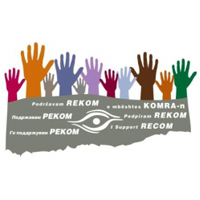
 Some 23 years after the outbreak of the war in the former Yugoslavia, the bodies of 13,000 victims remain unaccounted for. On the occasion of the International Day of Missing Persons, the Coalition for RECOM calls on the governments of the post-Yugoslav countries in the region, national commissions and other competent bodies to confirm that the discovery of the bodily remains of involuntarily missing persons is a priority, and a key element of their regional cooperation. In so doing, they will lay a cornerstone in the development of a public culture of memory of their common past.
Some 23 years after the outbreak of the war in the former Yugoslavia, the bodies of 13,000 victims remain unaccounted for. On the occasion of the International Day of Missing Persons, the Coalition for RECOM calls on the governments of the post-Yugoslav countries in the region, national commissions and other competent bodies to confirm that the discovery of the bodily remains of involuntarily missing persons is a priority, and a key element of their regional cooperation. In so doing, they will lay a cornerstone in the development of a public culture of memory of their common past.

Sorry, this entry is only available in srpski.
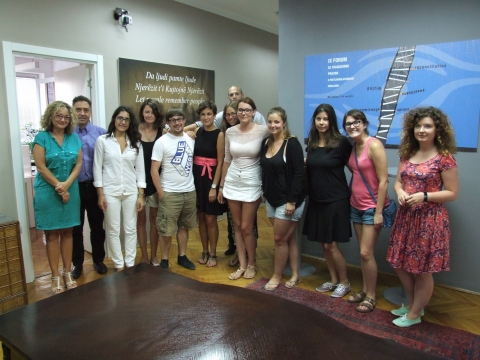
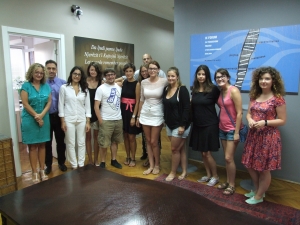 On Saturday, August 23rd, 2014 participants of the “Hands on the Balkans” programme, organized by the Thessaloniki Center for Democracy and Reconciliation, visited the Humanitarian Law Centre (HLC). The participants in the program are young students and researchers from faculties of political sciences from across Europe, who during their two-week stay in the Western Balkans region, are learning first-hand about sustainable development and democratization in the region.
On Saturday, August 23rd, 2014 participants of the “Hands on the Balkans” programme, organized by the Thessaloniki Center for Democracy and Reconciliation, visited the Humanitarian Law Centre (HLC). The participants in the program are young students and researchers from faculties of political sciences from across Europe, who during their two-week stay in the Western Balkans region, are learning first-hand about sustainable development and democratization in the region.

The European Commission (EC) Screening Report for Chapter 23 – Judiciary and Human Rights, does not contain information on the rights of victims of the war crimes and of mass violations of human rights committed during the 1990’s to material compensation and other types of reparation. The Humanitarian Law Center (HLC) calls upon all participants in Serbia’s European Union (EU) accession negotiations to include all norms and international standards relating to the rights of victims of human rights violations, including the requirements of the EU Acquis, into the process of the harmonization of domestic regulations with EU law.